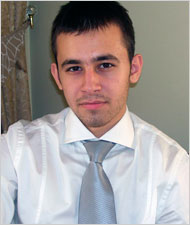 "They forced me to undress. Then they started squeezing my fingers with pliers. They put staples in my fingers, chest, and ears. I was only allowed to take them out if I spoke," said a 31-year-old man who was detained in Idlib in June. "They used two wires hooked up to a car battery to give me electric shocks. They used electric stun-guns on my genitals twice. I thought I would never see my family again. They tortured me like this three times over three days."
"They forced me to undress. Then they started squeezing my fingers with pliers. They put staples in my fingers, chest, and ears. I was only allowed to take them out if I spoke," said a 31-year-old man who was detained in Idlib in June. "They used two wires hooked up to a car battery to give me electric shocks. They used electric stun-guns on my genitals twice. I thought I would never see my family again. They tortured me like this three times over three days." Other torture methods described in the report include hanging detainees from the ceiling and beating them with cables, whips and pipes and pulling out fingernails with pliers.
Former detainees who were interviewed by Human Rights Watch reported witnessing the death of other detainees while in custody, though the rights group has not been able to confirm independently the numbers of fatalities in detainment.
While the majority of those interviewed were men between the ages of 18 and 35, Nadim Houry, the deputy director of HRW's Middle East and North Africa division, told ABC News the group also interviewed women, children and the elderly.
"I interviewed a child as young as 11 years old and a man over 70 who had been detained and tortured when security forces couldn't find his sons," said Houry.
Houry also said that activists from across Syria's religious communities, including the ruling Alawite minority, had reported being detained.
Anti-government protests have been raging across the country for over a year and have become increasingly violent over recent months. The Syrian authorities have maintained that they are battling foreign-funded terrorists while activists contend that they are fighting for freedom and democracy. The United Nations puts the death toll at over 10,000.
Syria Has 27 Torture Centers: Report
http://worldnews.msnbc.msn.com/_news/2012/07/03/12536841-rights-group-syrias-20-ways-to-torture-prove-its-crimes-against-humanity?lite
http://abcnews.go.com/Blotter/syria-27-torture-centers-report/story?id=16703453








